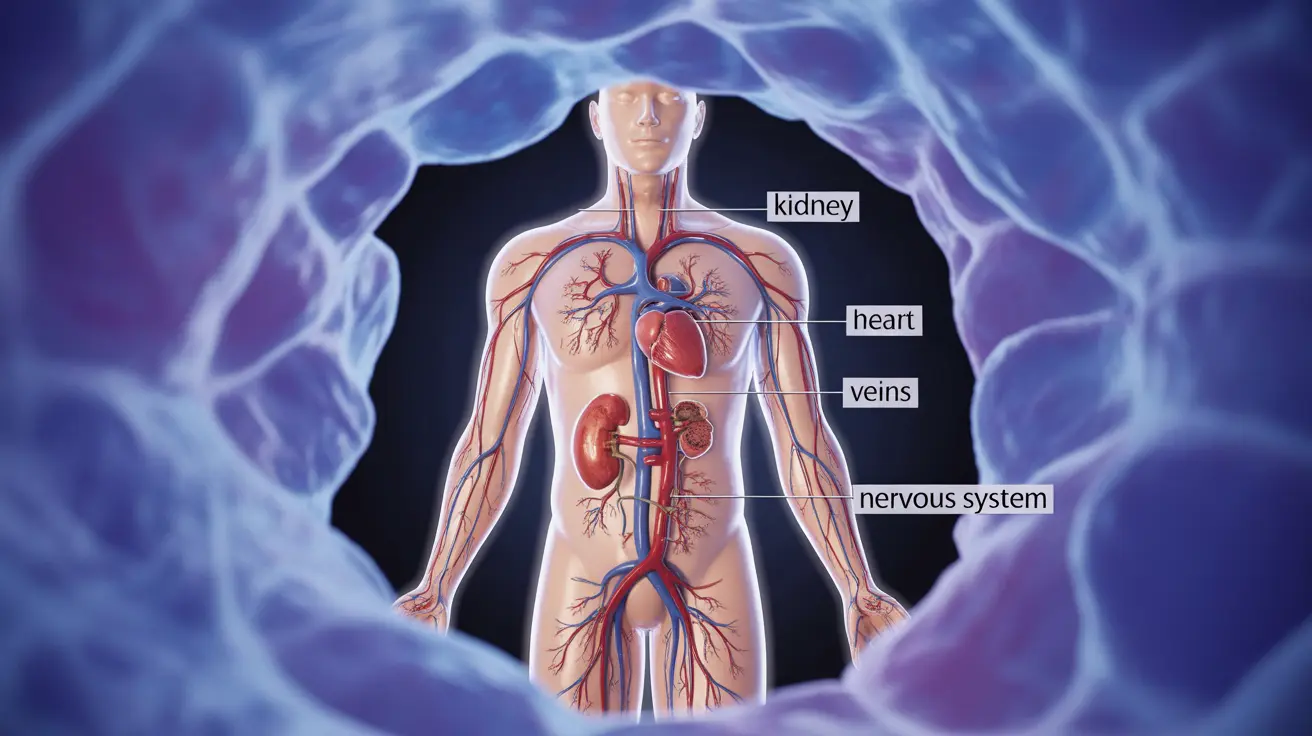Lupus is a complex autoimmune disease that can affect multiple organs and systems throughout the body. Understanding the potential complications of lupus is crucial for both patients and healthcare providers to ensure early detection and proper management of these serious conditions.
This comprehensive guide explores the various ways lupus can impact different organ systems and discusses important strategies for monitoring and treating these complications.
Kidney Complications in Lupus
Lupus nephritis is one of the most serious complications of lupus, affecting up to 60% of patients. When lupus attacks the kidneys, it can cause inflammation and damage to the kidney's filtering system, potentially leading to kidney failure if left untreated.
Common signs of kidney involvement include:
- Swelling in the legs and feet
- High blood pressure
- Changes in urine color or frequency
- Foamy urine
- Unexplained weight gain
Treatment Approaches for Lupus Nephritis
Treatment typically involves a combination of medications to control inflammation and protect kidney function. These may include immunosuppressants, corticosteroids, and medications to manage blood pressure and prevent further kidney damage.
Cardiovascular Complications
Lupus significantly increases the risk of cardiovascular problems, including heart attacks and strokes. The inflammation caused by lupus can damage blood vessels and accelerate the development of atherosclerosis, even in younger patients.
Managing Cardiovascular Risk
Preventive measures include:
- Regular blood pressure monitoring
- Cholesterol management
- Lifestyle modifications
- Smoking cessation
- Regular exercise as tolerated
- Heart-healthy diet
Neurological Manifestations
Lupus can affect both the central and peripheral nervous systems, leading to various neurological complications. These manifestations can range from mild to severe and may significantly impact quality of life.
Common neurological symptoms include:
- Headaches and migraines
- Memory problems
- Confusion or brain fog
- Seizures
- Stroke-like symptoms
- Mood disorders
Pulmonary Complications
Lung involvement in lupus can manifest in several ways, including inflammation of the pleura (pleurisy), pneumonitis, and pulmonary hypertension. Early recognition of respiratory symptoms is crucial for proper management.
Signs of Lung Involvement
Key symptoms to watch for include:
- Shortness of breath
- Chest pain, especially when breathing
- Persistent cough
- Decreased exercise tolerance
Blood and Bone Complications
Lupus can affect blood cells and bone health, leading to various complications such as anemia, increased bleeding risk, and osteoporosis. Regular monitoring and preventive measures are essential for managing these complications.
Prevention and Management Strategies
Important steps include:
- Regular blood count monitoring
- Bone density screenings
- Adequate calcium and vitamin D intake
- Weight-bearing exercises when appropriate
- Medication management to prevent bone loss
Frequently Asked Questions
What are the common kidney complications associated with lupus and how are they treated?
Lupus nephritis is the most common kidney complication, causing inflammation and potential damage to the kidneys' filtering system. Treatment typically includes immunosuppressive medications, corticosteroids, and blood pressure management.
How does lupus increase the risk of heart attacks and strokes?
Lupus causes chronic inflammation that can damage blood vessels and accelerate atherosclerosis. This, combined with increased risk of blood clots and potential medication side effects, significantly raises cardiovascular risk.
What neurological problems can lupus cause and what symptoms should I watch for?
Lupus can cause various neurological issues, including headaches, memory problems, seizures, and mood disorders. Watch for persistent headaches, confusion, changes in behavior, and any stroke-like symptoms.
How can lupus affect the lungs and what are the signs of lung involvement?
Lupus can cause pleurisy, pneumonitis, and pulmonary hypertension. Key signs include shortness of breath, chest pain during breathing, persistent cough, and reduced exercise tolerance.
What steps can be taken to prevent or manage blood and bone complications in people with lupus?
Regular monitoring of blood counts, bone density screenings, adequate calcium and vitamin D supplementation, appropriate exercise, and medication management are essential preventive measures.




